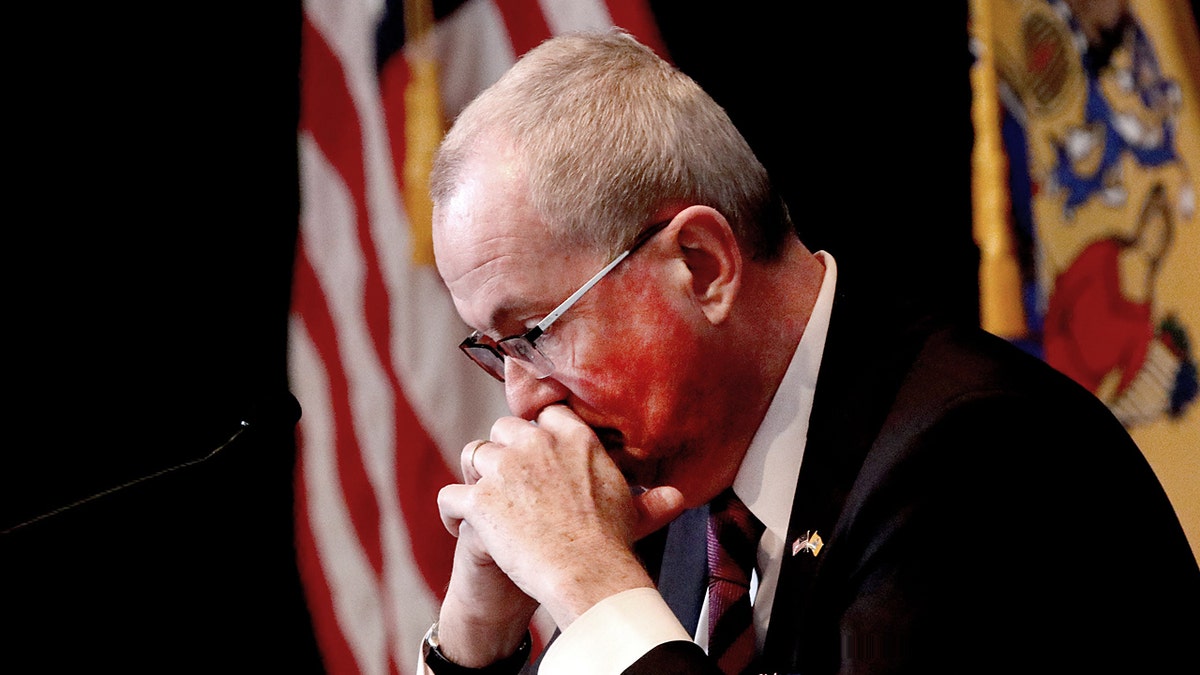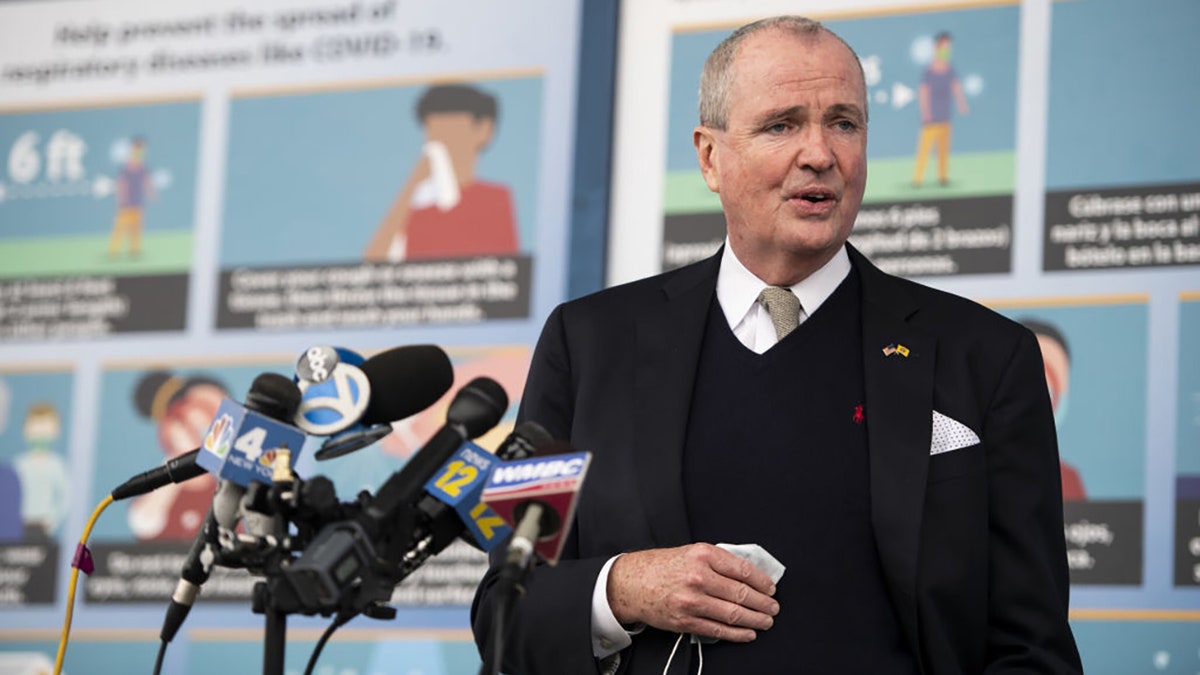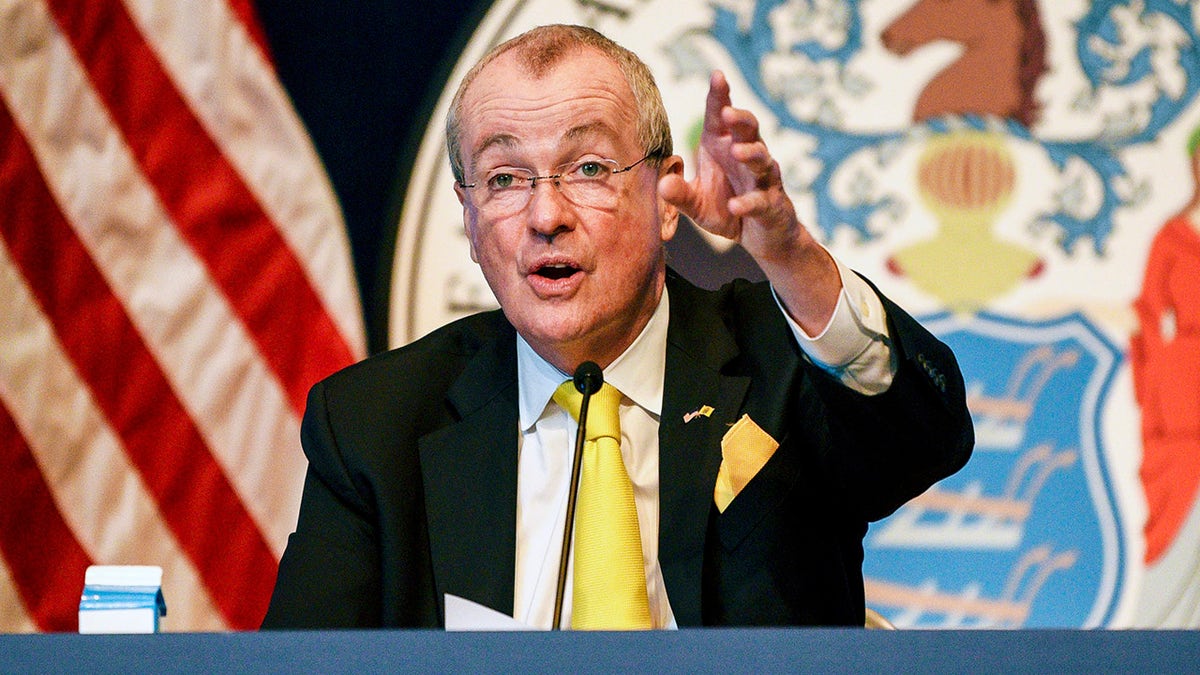McAuliffe and Youngkin in tight race days ahead of Virginia election
Fox News correspondent Rich Edson has the latest on where each gubernatorial candidate stands on the campaign trail.
New Jersey Gov. Phil Murphy is seeking reelection next week, attempting to become the first Democrat to be reelected governor in the Garden State since 1977.
Murphy, who graduated with a degree in economics from Harvard University in 1979 and worked for Goldman Sachs for 23 years, got his start in politics when he served as the National Finance Chair of the Democratic National Committee between 2006 and 2009, serving at the time under DNC Chair Howard Dean.
After former President Barack Obama was elected in 2008, Murphy was appointed as U.S. ambassador to Germany and served in the role until 2013.

New Jersey Governor Phil Murphy (USA TODAY NETWORK via Reuters Connect)
Speculation started shortly after his time as ambassador to Germany that Murphy might launch a bid to become New Jersey's governor in 2013, but he ultimately decided against it.
NJ GOV. MURPHY'S MULTIPLE CONTROVERSIES THREATEN CHANCES TO BE FIRST DEM REELECTED IN OVER 40 YEARS
A vocal critic of former New Jersey Gov. Chris Christie, Murphy announced his bid for the Democratic nomination for governor in 2016, officially entering the 2017 New Jersey gubernatorial election.
Earning the endorsements of both of New Jersey's Democratic U.S. Senators, Bob Menendez and Corey Booker, Murphy easily won the Democratic primary with 48.1% of the vote. Facing off against Republican nominee Kim Guadagno, Murphy won the general election by a margin of 55.7% to 42.2%.
Murphy has pushed several progressive policy proposals in his time as governor, including the legalization of recreational marijuana, a $15 per hour minimum wage and guaranteed paid sick leave for employees.
Now running against Republican candidate Jack Ciattarelli in next Tuesday's election, Murphy's campaign has focused on his response to COVID-19 and creating more jobs for the state. He has also called for criminal justice reform, arguing that minorities are at a systemic disadvantage under the current criminal justice system.

Phil Murphy, New Jersey's governor. (Mark Kauzlarich/Bloomberg via Getty Images)
But the governor faces several challenges in his bid for reelection, most notably when it comes to his heavy-handed approach to dealing with the COVID-19 pandemic.
One controversial policy was his decision to order nursing homes to readmit residents recovering from COVID-19, drawing comparisons to former New York Gov. Andrew Cuomo and criticism that the order caused unnecessary deaths.
Republicans in the state slammed the governor following the release of footage from a campaign official saying he will require residents to be vaccinated against COVID-19 if he were to be reelected.
Murphy has also faced criticism for failing to address the state's nation-high property taxes, an issue he famously dismissed in 2019, reasoning if "you’re a one-issue voter and tax rate is your issue, we’re probably not your state."
CLICK HERE TO GET THE FOX NEWS APP

FILE - New Jersey Gov. Phil Murphy (Anne-Marie Caruso/The Record via AP, Pool)
But those comments came at a time of a mass exodus of residents from the state, with one analysis showing New Jersey had the highest rate of outbound migration in 2019.
Despite the challenges, current polling shows Murphy with a comfortable lead over his Republican challenger. According to the most recent polls collected by RealClearPolitics, Murphy's smallest advantage is six points in an Emerson poll conducted between Oct. 15-18. Other polling shows Murphy with an even larger advantage, including a new Monmouth poll that showed him enjoying an 11-point lead over Ciattarelli.












































